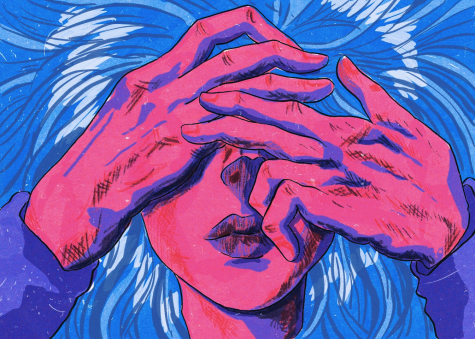Bisexuality, bi-erasure and why it’s important to change the narrative
February 11, 2021

During a play in middle school, Kaitlyn Venturina developed a crush on another cast-mate. It was her first identifiable crush on another girl and she asked herself, “What does this mean for me?”
After doing some research and personal exploration into bisexuality, she decided to let people know about her newfound identity with an Instagram post. But before coming out, she had a few concerns.
“If I do come out … ’Am I going to be loved or not?’ ‘Am I going to be enough or not?’” said Venturina, a sophomore film major.
Something Venturina did not initially question was whether or not people would believe her.
Bi-erasure, according to the Gay and Lesbian Alliance Against Defamation, is “a pervasive problem in which the existence or legitimacy of bisexuality (either in general or in regard to an individual) is questioned or denied outright.”
There is a plethora of stereotypes surrounding bisexuality—from being hypersexual to not wanting to “pick a side.”
Jenn Lee, a graduate student in the English and Creative Writing Department’s nonfiction program, grew up in a very “openly queer” household, so coming out did not feel like “coming out” to her.
However, when she was 24 and new to culinary school, Lee met a woman who told her bisexual people “did not exist” and that it was a “stepping stone on the way to coming all the way out.”
Lee, who has been married for almost 13 years, is in a “straight-passing relationship,” she said. While her husband supports her sexuality, Lee said it constantly feels like she is coming out to people.
The feeling of continually “coming out” is often exacerbated by the belief that if someone identifies as bisexual, and is in a relationship with someone of the opposite sex, one or both partners must be straight, Venturina said.
“If I’m dating a woman, that doesn’t mean I’m gay,” Venturina said. “If I’m dating a guy … that doesn’t mean I’m heterosexual. There is this erasure … that can be really invalidating to my own sexuality.”
According to an article by myGwork, a business community for LGBT+ professionals and those who believe in workplace equality, bisexuality is often ignored by media, academics and society at large.
Media impacts the way people view and understand unfamiliar territory and substantial bisexual representation can be hard to find in mainstream media.
Elijah Jagours, a sophomore music major, said when a bisexual character is included in mainstream media, it is often through reality TV, and it is usually an attractive woman in a party setting, which still appeals to a heteronormative audience.
Jagours said he would love to see more movies like “Love, Simon” or “Moonlight” that have a bisexual main character that explores both sides of the spectrum without leaning toward one or the other.
Jagours, who has openly identified as bisexual since the seventh grade, said when he came out to his family, they thought it was a phase he would go through before he came out as gay.
Today, because he likes to express his femininity, his friends still often view him as gay and not bisexual.
“We’ll joke around, be like ‘Oh, you’re gay,’ because we can,” Jagours said. “But even then, I’m not exactly that, … and I always feel diminished, even in my own friend group. I don’t feel like they 100% see me for who I am.”
Lee said to change the narrative around bisexuality, there needs to be a discussion about bisexuality as a spectrum because, while bi-erasure is damaging and there is a need to fight biphobia, it is also valid for people to explore their sexuality and find themselves without committing to an identity.
“It’s not a phase, it’s a progression or an evolution,” Lee said. “That doesn’t mean that anything you were feeling along the way was not true.”
Jagours said while it is agitating to defend his sexuality as a bisexual man, he always creates space to uplift those facing similar struggles or exploring their own sexuality.
Lee said she is now confident and proud of her sexuality because she has the ability to be.
“Part of why I feel able to be loudly queer … is because within the queer umbrella I am pretty safe and secure,” Lee said. “I am a white woman, I am cis [and] I am in a relationship that can pass as straight. So why not push that a little bit and be loud?”







